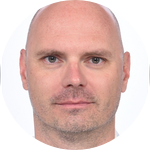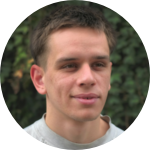About This Project
The project aims to develop a low-cost microscopy platform for micro-fabrication that achieves similar resolution as proprietary setups. By hacking hardware from cheap resin printers, and integrating it with open-source microscope platforms, we will make designing custom micro-fabrication experiments (microfluidics, lab-on-a-chip, micropatterning) accessible to anyone. We will evaluate applicability for live cell experiments by comparing against commercially available chips and platforms.
Ask the Scientists
Join The DiscussionWhat is the context of this research?
How do cells sense geometrical cues to navigate in complex 3-dimensional environments? Understanding how cells are capable of invading tissues is crucial in preventing metastasis. By placing cells in tiny mazes, we study how they probe their surroundings, and what signaling dynamics allow them to squeeze through narrow gaps. The mazes are built using microfabrication, a technique used to create small-scale structures. Traditional microfab techniques require equipment costing tens of thousands of dollars, making it inaccessible to many researchers. By developing open-source hardware tools and protocols, we eliminate expensive equipment and the need for a clean room environment, and continue current efforts to make microfab accessible and cost-effective for small labs.
What is the significance of this project?
We are successfully using this protocol with closed-source hardware for many different commonly used cell biology projects in the lab: Microwells for single-cell traps, microfluidics to study migration under confinment, and micro-patterns with subcellular precision to study cytoskeletal dynamics at the single cell scale, or effects of geometrical constraints on collective behaviour. The fast iteration times have massively increased our productivity, enabling us to explore unconventional design ideas that we previously have avoided because of the associated cost, an issue otherwise only addressed by in silico optimisation. By translating this protocol to an open-hardware platform, the FabScope, we will make these benefits available to everyone.
What are the goals of the project?
The FabScope should be able to produce microfluidic chips and micro-patterns with the same spatial resolution as we achieve with our current proprietary setup (<10 µm). We will validate it’s micropatterning abilities by comparing against commercially available chips. Our approach involves hacking mass-produced consumer to source cheap hardware. Digital micromirror devices (DMD) are employed in movie projectors and resin 3D printers. By exchanging the optics of the projector, the image can be reduced in size instead of being enlarged onto a screen. We will then combine the modified optical engine with existing open-source microscope designs (UC2, OpenFlexure) to integrate it into a fully programmable microscope with a x/y/z stage.
Budget
A budget of $10,000 will allow us to acquire equipment, hardware and consumables for prototyping. Salaries during development time will be covered by different funding schemes.
Endorsed by
 Project Timeline
Project Timeline
These are the steps to translate our protocol to an open-hardware toolbox: The first months will be sourcing and iterating on different hardware designs, then integration with open-source microscope platforms. Next we will create the necessary electronics and software to interface with the platform programmatically. After validation of the platform, we reserved time to make our results accessible and reproducible, and to share the designs in a maintainable way (Github).
Jun 19, 2023
Project Launched
Jul 01, 2023
Testing various DMD devices and optical engines
Sep 01, 2023
Connect optical engine to open-source microscope hardware
Sep 01, 2023
Design custom PCB to connect DMD chip to low cost computers (Arduino/RaspberryPi)
Oct 01, 2023
Writing software that enables automatic patterning
Meet the Team
Team Bio
The Pertz Lab uses multidisciplinary approaches to study single-cell, spatio-temporal Signaling Dynamics that regulate Cell Morphogenesis and Fate Decisions. To address these challenges, we devise novel quantitative approaches to measure/manipulate signaling dynamics at biologically relevant time/length scales. With a demonstrated strong background in hardware design we are ready to tackle this project.
Lucien Hinderling
PhD student in cell biology with a background in computer science, trying to make microscopes smarter. Interested in all things cell signalling, optogenetics, 3d-printing, open science.
Project Backers
- 2Backers
- 100%Funded
- $7,050Total Donations
- $3,525.00Average Donation



